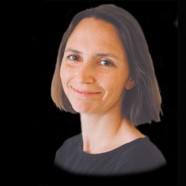
The Air They Breathe
By Debra Hendrickson, MD
256 pp Simon & Schuster
In the southeastern United States, the month of October kicked off with over two hundred people dead, still more missing, and hundreds of thousands of households and businesses picking up the pieces in the aftermath of Hurricane Helene’s rampage. Meanwhile, the southwestern corner of the nation was broiling in triple digit heat, and 27 large wildfires continued to incinerate forests in eight western states.
This is the climate crisis writ large.
But in Reno, Nevada, pediatrician Debra Hendrickson sees climate change impacts writ small. And while they may be small, they’re no less devastating. That’s because Reno has the dubious distinction of being identified as the fastest-warming city in the country due to greenhouse gas emissions, and in recent years Hendrickson’s young patients are increasingly suffering from the effects of wildfire smoke, heat exhaustion, asthma, and even dangerous new virus outbreaks.
Now, in “The Air They Breathe,” the doctor presents case study after heartbreaking case study of the ways kids have gotten sick due to a metastasizing climate catastrophe caused by humanity’s fossil fuel-burning activities across the planet.
“For every other problem I discussed with parents,” she writes, “I could give advice or a prescription, an order for a lab test or a referral to a specialist. I could tell them what to do to help their own children. But for this, what could I say?”
That’s why she has written this book.
It’s a diagnosis of how the harms we have done to our planet are affecting our youngest and most vulnerable. It’s a proscription “against the corporations whose decisions [have] led us here.” And it’s a plea to all of us who, collectively, have let this happen – to stop being complacent and to work harder to make corrective changes immediately.
Hendrickson first invites us to consider our surroundings. Too often, she writes, “Distracted by the buzz and shine of modern life, we are disconnected from the natural systems on which we depend…. The unseen web of air, water, temperature, and living things…. We take for granted what we shouldn’t.”
For all of the reasons we have to celebrate the advances of modern civilization – water treatment plants, vaccines, antibiotics, and more – we’ve ignored the looming existential threat of carbon pollution.
And this is particularly dangerous for young lives. Children are more at risk than their parents because at birth, their bodies aren’t fully developed yet. When it comes to “the air they breathe,” a child’s exposure to toxins in the atmosphere can actually stunt lung growth – “switching off” genes that are meant to develop lung tissue and the respiratory tract more fully. Our body’s breathing mechanisms are vital to protecting us from any inhaled threats (viruses, bacteria, etc.), so if a child’s lungs are compromised, that can result in anything from childhood asthma to diminished ability throughout life to fend off lung infections, and it even increases the risk of cardiovascular disease.
Likewise for heat-related illnesses. Younger bodies have a metabolism that doesn’t have the same capabilities as a fully mature metabolism – meaning heat exhaustion can set in more easily, and without prompt attention to hydration and finding a shady place to rest, becoming overheated can lead more quickly to heatstroke and the shutdown of internal organs. We’ve heard about these cases in the news – the football players who collapse on the field, infants accidentally left in a hot car, the trail runners or young migrants who expire in the desert.
In another chapter, Hendrickson talks about the uptick of insect-borne diseases: Lyme disease, dengue, malaria, and the devastating Zika pathogen. Water-borne bacterial infections also are on the rise.
And she talks not only about physical maladies, but the emotional and psychological impacts that our cascade of climate crises are having. How do those folks in Asheville, North Carolina, cope with the prospect that it will take years to rebuild their flood-ravaged communities? How do children not only grapple with their own terrors, but also make sense of the anguish of their elders
“It is impossible to overstate the emergency we are in, and how muted the world’s response is relative to the threat,” Hendrickson warns.
But in the book’s final chapter, she does lay out a vision for a more hopeful, healthful future.
“Doctors don’t typically give prescriptions for infrastructure and agriculture,” she admits. “But green energy and sustainable living are as important to my patients’ welfare as car seats, medications, laboratory tests, and vaccines.”
She points out that it’s only been in the past 200 years that societies broadly accepted the importance of developing sewage treatment plants and improving public water systems for the health of the overall population.
Now it’s time for us to recognize that we need to consider another one of the vital elements – air – through a similar public health lens.
“The latest science shows that if we stopped adding carbon to the atmosphere, Earth would stop warming in only three to five years.” That’s Hendrickson’s emphasis, not mine.
What a hopeful goal! Yet achieving this will require an all-hands-on-deck effort: each one of us needs to reconsider our own actions, whether it’s how we commute to work or how we travel for pleasure, the food we choose to eat and how we cook it, how we heat our homes, how we steward our gardens, and – really important for us to remember in this election season – how we vote and who we vote for – at all levels of government.
All of our actions will add up, one way or another.
The best medicine we have, Hendrickson tells us, is each other.
Barbara Lloyd McMichael is a freelance writer living in the Pacific Northwest.









